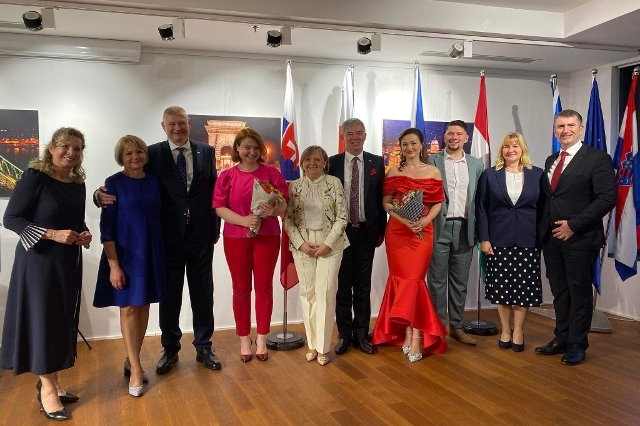
Ministr Zaorálek pro Financial Times: Orgány EU musí přijmout část viny za Brexit
30.06.2016 / 16:54 | Aktualizováno: 30.06.2016 / 17:42
Článek ministra zahraničních věcí Lubomíra Zaorálka pro Financial Times ze dne 30. 6. 2016.
EU institutions must share some of the blame for Brexit
Lubomír Zaorálek
After last week’s referendum in the UK, there is pressure for decisive action — a swift EU divorce from Britain and a bold rethink of European integration, even treaty change. The urge to move quickly is understandable, but dangerous. Temporary uncertainty is preferable to a bad and irreversible choice.
The other 27 member states of the EU face two challenges, neither of which lends itself to a quick fix. The first is reconfiguring relations with the UK to allow for a close and reciprocal partnership. The second is recalibrating the European project in order to strengthen cohesion and regain the trust of citizens. The first task is hugely important. The second is existential.
Both the Brexit negotiations and EU institutional reform must be approached with humility. It is tempting to pin all blame on the recklessness of British politicians and voters. But it would be dishonest. After all, Brexit is a symptom of a wider crisis of trust and the collapse of the EU’s political capital. The UK may well be a special case, but the concerns that animated the Leave vote — particularly over the downsides of globalisation — are echoed in other member states.
Brussels institutions, in particular the European Commission, share some of the blame. The bodies that are meant to instil a sense of common purpose have become symbols of alienation. Instead of protecting the unity of the EU, they have contributed to national division and public mistrust, especially in their response to the refugee crisis.
Having aspired to make the commission more “political”, its current leadership has come to epitomise the image of a technocratic elite detached from the concerns of national publics. The mere fact that its president, Jean-Claude Juncker, was discouraged from taking part in a referendum campaign in a member state — for fear that his presence would backfire — suggests that something is wrong.
For too long, bridging the gap between EU citizens and EU governance was treated as a distraction from crisis management. That must change. The EU might have been born as an elite project, but it surely cannot survive as such.
This is why I am truly baffled by proposals, floated immediately after the UK referendum, for further integration. The only thing more dangerous than a federalist push would be moves by member states to reclaim national sovereignty.
None of which means sticking with the status quo. The Czech Republic supports the idea of closer co-operation in areas — including defence, security and law-enforcement, energy, the digital single market and immigration — where integration is essential to the collective interests of EU member states and makes sense to our citizens.
The evolution toward a more diversified EU is a fact of life. The Czech Republic wishes to be at the core of it, as long as the process remains inclusive and open-ended, without disturbing the foundations and overall cohesion of the bloc.
The EU institutions, in particular the commission, should take a leading role in the process. To play that part, however, its exclusivist style of leadership must change. The commission must become a force for inclusion, not an agent of the “core”. It must reinvent itself as a kind of marriage counsellor to prevent another divorce in the European family. This is what acting “politically” means in the EU context.
The fallout from the referendum is a reminder of the true value of the European project — as a bulwark against our inner demons. The UK is now facing a currency plunge, an economic slowdown, a political vacuum, the possible secession of Scotland and uncertainty over the Northern Ireland peace settlement. It provides a dystopian glimpse of a Europe without a strong EU, a future that both the EU and the UK must work to prevent.
The writer is minister of foreign affairs of the Czech Republic






